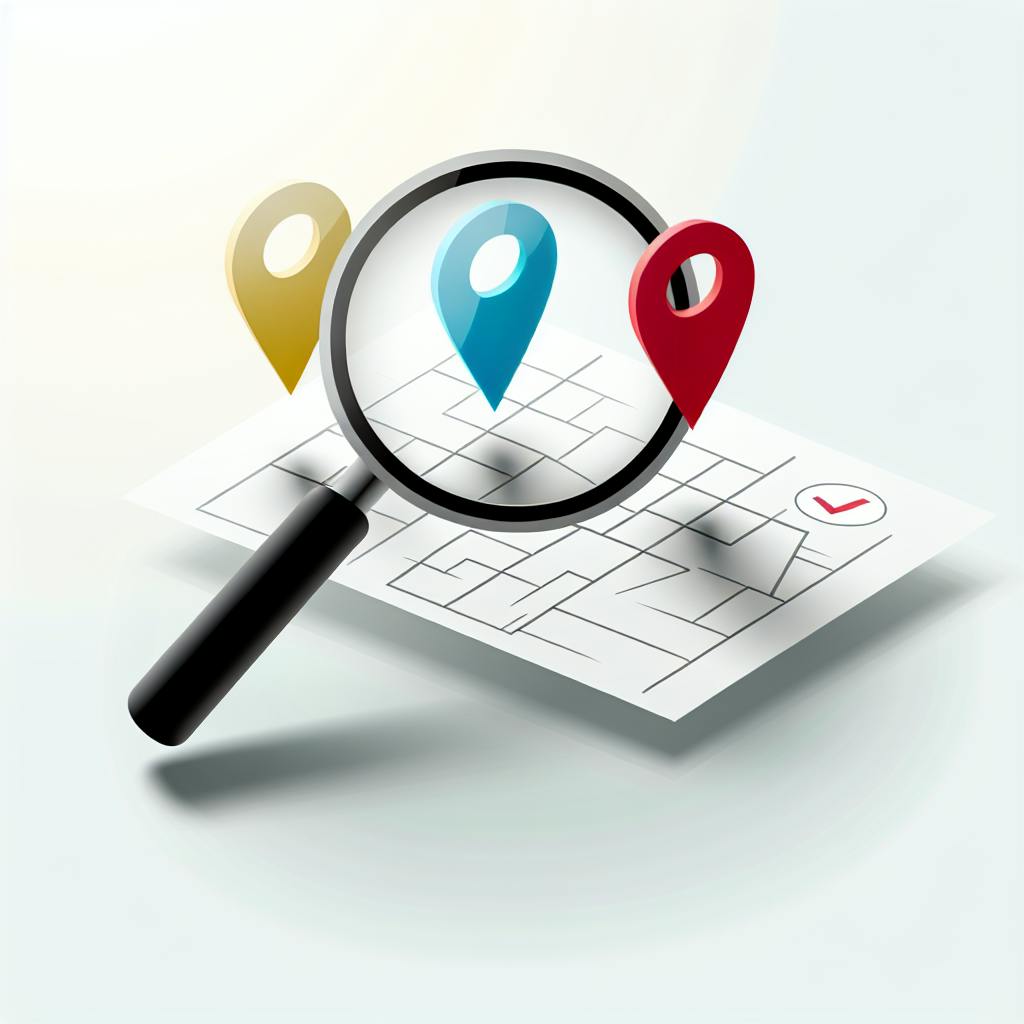With the rapid growth of AI, most SaaS companies would agree that leveraging AI products can unlock tremendous potential.
In this post, we will analyze the latest AI product trends in SaaS - from conversational AI to process automation - to help businesses stay ahead of the curve and maximize value.
You will discover the surge of AI platforms in SaaS, what constitutes an AI product, key advancements to watch, the emerging role of the AI product manager, and how SaaS companies can embrace AI trends for future success.
Introduction to AI in SaaS
Artificial intelligence (AI) capabilities are rapidly transforming software-as-a-service (SaaS) offerings. By 2023, over 50% of SaaS companies are projected to leverage AI technologies to enhance their platforms. As AI continues revolutionizing businesses, understanding key trends can help companies utilize AI effectively and gain a competitive edge.
The Surge of AI Platforms in the SaaS Industry
- According to IDC, spending on AI software platforms will reach $37.5 billion in 2024, reflecting over 50% annual growth. SaaS companies are quickly adopting these platforms to power predictive analytics, personalized recommendations, and automated workflows.
- MarketsandMarkets predicts the AI in SaaS market will grow from $3.25 billion in 2021 to $15.8 billion by 2026, showcasing the immense potential as more SaaS offerings integrate AI capabilities.
- Leading SaaS providers like Salesforce, HubSpot, and Zendesk already utilize AI across sales, marketing, and customer support applications to deliver intelligent experiences. More companies are following suit to keep pace with customer expectations.
Unlocking Business Potential with AI Products for Business
AI unlocks immense potential for SaaS companies to boost efficiency, insights, and experiences:
- Personalization - AI powers individualized recommendations and tailored content to delight customers. Chatbots also enable conversational experiences.
- Automation - AI automates repetitive tasks, freeing employees to focus on high-value work. It also cuts costs and quickens processes.
- Analytics - AI derives hidden insights from data to inform strategy. It also enables predictions to act ahead of outcomes.
As AI capabilities grow more advanced and accessible, companies that strategically leverage AI can gain sustainable competitive advantages. Understanding the landscape is key to harnessing AI's full potential.
What is an AI product?
An AI product is software that utilizes artificial intelligence to automate tasks and processes that would otherwise require human effort and decision making. Key characteristics of AI products include:
- Automation of manual processes: AI products can take over repetitive, routine tasks like data entry, customer service inquiries, reporting, etc. This saves humans time and effort.
- Advanced analytics: AI products can process and gain insights from large volumes of data much faster than humans, revealing patterns and opportunities.
- Continuous learning: Many AI products continue to improve over time, learning from new data inputs without additional programming.
- Natural language processing: Some AI products can understand written or spoken language, allowing more natural human-computer interaction.
For example, an AI product could be an intelligent chatbot that answers customer questions, a visual inspection system in manufacturing, a predictive sales forecasting tool, or a product recommendation engine on an ecommerce site.
As per the context quote, if the product can independently carry out tasks that normally require human intelligence - like resolving a customer request or initiating an automated workflow from a question - then it demonstrates AI capabilities. This is what defines an AI product.
The ai product landscape encompasses a vast range of solutions aimed at boosting business productivity through automation, analytics, and digital assistance. As AI technology advances, more processes can be enhanced or fully automated by AI products for business.
What is the AI product concept?
The AI product concept refers to leveraging artificial intelligence and machine learning to enhance software products and services. As AI continues to advance, more and more SaaS companies are integrating AI capabilities into their platforms.
Some common ways AI is being used in SaaS products include:
- Automating repetitive tasks and workflows
- Providing personalized recommendations and insights
- Enabling natural language processing for chatbots and virtual assistants
- Generating predictive analytics to inform business decisions
- Continuously optimizing algorithms and models to improve accuracy over time
There are a few key drivers behind the rise of AI products in SaaS:
- Demand for intelligent automation: AI can help automate tedious processes, freeing up employees to focus on higher value work. This improves efficiency and productivity.
- Competitive differentiation: Integrating innovative AI features can set a SaaS product apart in a crowded market.
- Improved user experiences: AI powers more intuitive, contextualized experiences that adapt to individual users and usage patterns.
- Scalability: Once the upfront investment is made in developing AI models, they can scale easily as data grows without extensive human effort.
As AI techniques such as deep learning advance, AI product capabilities will continue to expand. We can expect AI to become further ingrained into the core functionality of SaaS tools across all industries in the coming years. The companies that effectively leverage AI today will have a competitive edge.
What products have artificial intelligence?
Artificial intelligence (AI) has become an integral part of many software products and services, especially within the SaaS industry. Here are some of the most common applications of AI across products:
Virtual Assistants
Virtual assistants like Amazon's Alexa, Apple's Siri, and Google Assistant use natural language processing and speech recognition to understand voice commands and respond through conversational interactions. These AI assistants can set reminders, answer questions, play music, and even control smart home devices.
Recommendation Systems
E-commerce platforms like Amazon use AI algorithms to analyze customer data and make product recommendations that match individual interests and purchase history. These intelligent recommendation engines help drive higher sales.
Fraud Detection
Banks and financial service providers rely on machine learning models to detect fraudulent transactions in real-time by recognizing suspicious patterns in the data. These AI fraud prevention systems minimize losses.
Autonomous Vehicles
Self-driving cars use computer vision, sensors, and deep learning models to safely navigate roads without human intervention. Companies like Tesla, Waymo, and Uber are advancing autonomous vehicle technology.
Chatbots
Many customer service chatbots now use natural language processing to understand text-based conversations and respond appropriately to common customer queries, directing them to the right solutions.
Image Recognition
AI-powered security systems can identify individuals through facial recognition as well as detect suspicious activity captured on video surveillance cameras.
Healthcare Diagnosis
AI diagnostic tools help doctors analyze medical images, predict diseases, and make better-informed treatment decisions for improved patient outcomes.
sbb-itb-8e44301
What is an example of AI?
A common example of AI that many people interact with on a regular basis is virtual assistants like Siri or Alexa. These assistants use techniques like natural language processing (NLP), machine learning (ML), and statistical analysis to try to understand requests and provide relevant information or perform actions.
For instance, if you ask Siri to "Call Mom," it will access your contacts, try to identify which contact is "Mom" based on contextual clues, and then place a phone call to that number. The assistant is using AI capabilities to interpret the verbal request, access the necessary data, and execute the desired action.
Other examples of AI that leverage similar techniques include:
- Image and voice search on sites like Google or YouTube - Algorithms analyze pixel and audio data to identify relevant images, videos or queries.
- Chatbots for customer service - Using NLP to understand questions and respond with helpful answers or route inquiries.
- Recommendation engines - ML algorithms track browsing data and purchase history to suggest products or content someone may like.
- Autonomous vehicles - Computer vision, ML, sensors and mapping help self-driving cars navigate roads safely.
So in summary, any software that can perceive real-world data and respond intelligently leverages AI on some level. From voice assistants to self-driving cars, AI allows machines to understand and interact with the world more like humans. Key techniques like ML, NLP and computer vision power most modern AI applications.
AI Product Development Landscape in 2023
AI products continue to transform how SaaS platforms operate in 2023. Key trends shaping AI product development and usage this year include:
Advancements in Conversational AI and ChatGPT
Conversational AI like chatbots and voice assistants are becoming integral to how users interact with SaaS products. ChatGPT demonstrates the potential for AI to have natural conversations and generate content. As these technologies advance, expect to see more conversational interfaces in SaaS tools.
The Rise of Explainable AI in Product Design
There is a growing focus on making AI more transparent and explainable to build user trust. Terms like "Explainable AI" highlight the need for SaaS products using AI to provide visibility into how recommendations and outputs are generated.
Optimizing SaaS with Robotic Process Automation
Robotic Process Automation (RPA) uses software robots to automate repetitive tasks. Integrating RPA and AI models into workflows helps SaaS platforms streamline operations and reduce costs.
Deep Learning and Machine Learning Algorithms
Advancements in deep learning and machine learning algorithms are making AI products smarter. As these techniques continue to mature, they will likely be incorporated into more SaaS offerings to enhance capabilities.
AI Products 2023: A Look at the Top AI Products
Some standout AI products helping shape the market in 2023 include tools for generating content, analyzing data, automating tasks, facilitating search, etc. As innovation progresses, expect leading AI products to set new precedents for what's possible.
The Role of the AI Product Manager in the SaaS Industry
Bridging AI Product Design and Business Strategy
The key role of an AI product manager is to ensure alignment between the AI capabilities being built and the core business goals those features aim to achieve. This requires deeply understanding users' biggest pain points and how innovative AI solutions can provide meaningful value. AI product managers should continuously analyze market trends and evolving customer needs to identify the ripest opportunities for AI to solve real problems. Any AI features or models pursued should demonstrably map to addressing users' top priorities.
Ensuring Quality: Rigorous Testing of AI Models
Robust testing and validation processes are imperative when developing AI products. AI models should be evaluated across diverse, real-world data sets to ensure accurate and unbiased performance that generalizes to a breadth of use cases. Testing should assess functionality, accuracy, bias, security, scalability, and other key criteria. AI product managers need to instill a culture focused on continuous improvement rather than rapid deployment, with iterative cycles of testing, enhancement, and re-evaluation.
AI Product Index: Measuring Success and Performance
Key metrics AI product managers should track include:
- Usage and adoption rates of AI features
- Business impact (revenue, conversions, etc.) driven by AI capabilities
- Model accuracy on representative test sets
- Prediction quality over time as new data is ingested
- End-user satisfaction scores specific to AI interactions
- Automation rates for previously manual processes
These provide quantifiable insights into an AI product's real-world usefulness.
Continuous Learning: AI Product Development Cycles
The data used to develop AI algorithms provides a snapshot that quickly becomes outdated. AI product managers should architect machine learning pipelines to seamlessly integrate new data, retrain models, and update products with enhanced AI capabilities over time. Maintaining momentum of continuous enhancement ensures that AI reliability and intelligence keeps pace with changes in the market.
AIProductManagement and DigitalProductManagement: A Comparative Analysis
While AI product management overlaps heavily with digital product management, some key differences include:
- More technical - Requires deeper involvement in data science and machine learning methodology
- Testing rigor - Greater emphasis on extensive testing and risk analysis
- Fluid targets - Goals evolve rapidly as AI capabilities expand
- User education - Need to guide consumers on appropriate and realistic uses
- Cloud dependency - Reliance on vast cloud compute resources
However, both share a customer-centric approach to solving real problems by harnessing technology. The integration of AI introduces expanded possibilities but also new complexities for product strategy and development.
AI-Driven Automation and Efficiency in SaaS
Artificial intelligence (AI) is revolutionizing efficiency within the software-as-a-service (SaaS) industry. AI-powered automation enables SaaS companies to streamline processes, enhance decision making with predictive analytics, and scale personalization.
Automate Processes with AI-Powered Robots
Robotic process automation (RPA) uses AI capabilities like computer vision and natural language processing to automate repetitive, rules-based tasks. This allows SaaS teams to reduce manual work and focus on high-impact initiatives. Key benefits include:
- Increased productivity and accelerated workflows
- Improved accuracy by reducing human error
- Cost savings from automating mundane tasks
- Better customer experiences via faster response times
SaaS leaders can deploy RPA bots to handle customer onboarding, data entry, reporting, and more. Bots integrate seamlessly across cloud-based systems, making rollout fast and scalable.
Predictive Models: Forecasting and Decision Making
SaaS products leverage predictive modeling and machine learning algorithms to forecast future outcomes. This empowers data-driven decision making for critical business functions:
- Churn prediction - Identify users at risk of canceling to improve retention
- Lead scoring - Prioritize high-value leads to boost sales efficiency
- Anomaly detection - Spot issues early to minimize disruptions
By combining historical data with real-time analytics, AI predictive models enable SaaS companies to optimize planning and strategic initiatives.
AI and the Finance Industry: A SaaS Perspective
Within financial services, SaaS innovators apply AI to automate processes and enhance decision making:
- Automated loan underwriting accelerates approval times while reducing risk
- Algorithmic trading executed in microseconds outpaces human traders
- Fraud detection systems analyze transactions for suspicious patterns
Additionally, conversational AI chatbots provide 24/7 customer service for banking and investments.
As AI capabilities grow more advanced, financial SaaS will continue innovating via intelligent automation.
AI-Powered Marketing: Personalization at Scale
SaaS marketers employ AI to segment users, predict behaviors, and deliver personalized messaging. Marketing use cases include:
- Tailored emails and web experiences boost conversion rates
- Dynamic pricing models customize pricing for each customer
- Contextual in-app messaging encourages engagement
With large datasets and advanced analytics, AI enables SaaS companies to provide relevant recommendations at scale.
AI Content Writer, AI Website Generator, and AI Email Writer
Natural language generation (NLG) technology automates content production for SaaS brands:
- AI writers create blog posts, social media captions, FAQs based on prompts
- Website builders generate pages using branded themes and custom layouts
- Email generators craft targeted drip campaigns and newsletters
By handling rote writing tasks, AI content tools empower marketers to publish more content faster. NLG is not yet capable of fully replacing human creativity but can aid productivity.
Conclusion: Embracing AI Product Trends for SaaS Success
Recap the key points on AI product trends and recommendations covered. Reiterate the growing role of AI in SaaS innovation.
Summarizing the AI Product Trends in the SaaS Industry
AI is transforming products across industries, and SaaS is no exception. Key trends we're seeing include:
- Integration of AI platforms like machine learning and natural language processing to add intelligence to SaaS offerings. This powers features like personalized recommendations, predictive analytics, and conversational interfaces.
- Rise of AI product managers focused on strategically leveraging AI to solve customer problems and differentiate offerings.
- Increasing focus on explainable AI to build trust by providing transparency into how AI systems make decisions. This is becoming a priority, especially for heavily regulated sectors.
- Growth of AI-powered automation to streamline processes like customer support, document processing, etc. This improves efficiency and reduces costs.
By embracing these trends, SaaS companies can enhance their products' capabilities, better meet customer needs, unlock new revenue opportunities, and future-proof their offerings.
Final Thoughts for AI Product Managers and SaaS Companies
For AI product managers, prioritizing explainable and trustworthy AI is key. Seek customer feedback early and often, be thoughtful about potential biases in data and systems, and educate stakeholders on AI best practices. Developing AI expertise across teams is critical for long-term success.
For SaaS companies, the message is clear - AI adoption is accelerating, and failing to incorporate it means falling behind. Appointing dedicated AI talent, auditing processes for automation potential, and piloting projects to demonstrate ROI are important first steps. AI integration will only grow more vital for competitiveness. The time for SaaS businesses to formulate an AI strategy is now.


